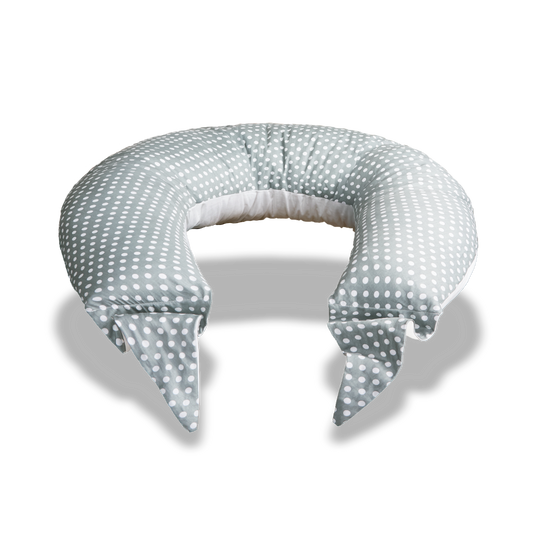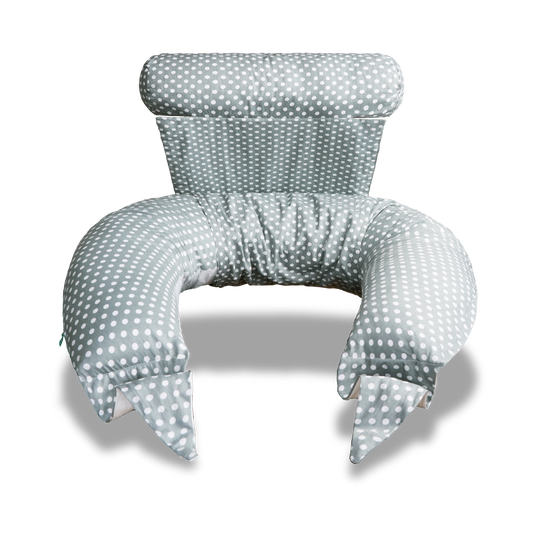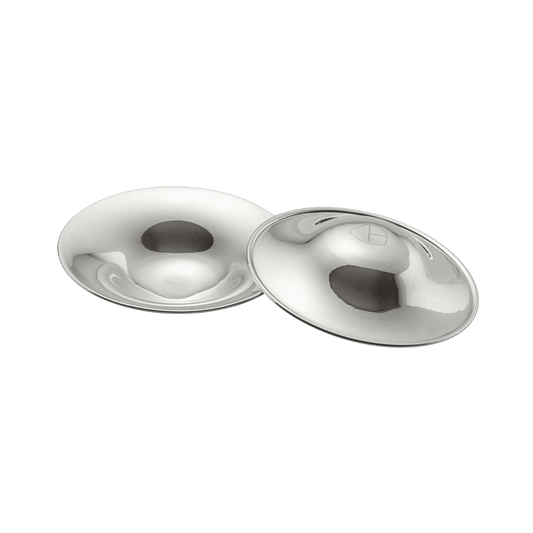You’re almost there: 9 months pregnant, and the birth is getting closer and closer. During this period, which runs from about the 35th to the 40th week, your body begins to send out new signals and your mind becomes overloaded with questions.
You wonder if what you are experiencing is normal, or how you can ease certain complaints. You try to understand your unborn baby’s movements as well as every little contraction you feel in case it's time to go to hospital.
In a few words: if you feel a little confused and overwhelmed, know that you are not alone! And we, who will always be close by, would like to help you by answering the most frequently questions asked by mums-to-be.
#1: 9 months pregnant: how do I recognise labour symptoms?
Probably the mother of all questions for a mum-to-be nearing the end of her pregnancy. The likelihood is that labour could happen any time between the 38th and 42nd week.
The problem is that due dates given my medical professionals are only predictions, as it is difficult to know with absolute certainty the conception date and the date the baby chooses to come into the world.
Throughout the last month you will feel slight contractions, known as Braxton-Hicks contractions, however, you will recognise when labour contractions commence as they are quite strong, initially spaced out and then becoming closer together.
They are accompanied by a feeling of heaviness in the lower abdomen area and sometimes back ache. If your waters break, there's no doubt about it: it's time to go to hospital!
#2: How much does the baby grow during the last month of pregnancy?
During the last few weeks of gestation, unborn babies’ organs are fully developed, and they continue to grow in both length and weight.
At 35 weeks they are about 45 centimetres long and weigh 2 kilos, while by birth they are on average about 50-55 centimetres long and weigh 3-4 kilos.
Keep in mind that during the last month, the baby grows more or less 30 grams a day: don't be surprised if by the final stages your baby bump is huge!
#3: Is cytomegalovirus dangerous during the last stages of pregnancy?
Cytomegalovirus is a member of the herpes family, a common and often asymptomatic virus.
Danger to the foetus is considered greatest during the first trimester of pregnancy, which is why initial blood tests often include a test to detect cytomegalovirus antibodies.
To be on the safe side, we recommend that you consult your Doctor.
#4: Is it good to walk when 9 months pregnant?
You will know when you're coming up to your ninth month of pregnancy: your bump feels heavy, and fatigue is setting in. However, taking daily walks for as far as you can has several benefits.
First of all, it relaxes you and helps to reduce swelling in your legs and feet as it stimulates circulation. In addition, walking during the last month of pregnancy is a useful tactic to encourage labour if your baby is overdue.
#5: Can you have sex during the last few weeks of pregnancy?
Certain topics aren’t always easy to talk about, which is why we are answering without you even having to ask. During the last month of pregnancy, as well as during the months leading up to it, if you feel like it, you can easily make love with your partner.
It helps stretch your muscles in preparation for labour and maintains your intimacy as a couple, which is important for the mental health well-being of you both. However, if you have a high risk pregnancy, due to specific medical issues, it is advised to avoid having sex.
#6: What are the common complaints of the last month of pregnancy?
The ninth month brings joy and excitement, but it also brings some physical discomfort. Heartburn, backache, swollen legs, breathlessness, and trouble sleeping are the most common minor issues.
So not to worry if you to experience them and know that, by taking simple measures, you can help ease them. Our Koala Hugs pillow, for example, will help you get a better night's sleep, alleviate back pain, and reduce swelling.
#7: What should I pack in my hospital bag?
First of all, we suggest you pack your hospital bag well in advance, i.e., before the ninth month.
As well as your pregnancy medical notes, you should pack everything that you and your newborn baby might need inside your bag: from clothes to accessories, not forgetting nappies and your phone charger... because sometimes the things we take for granted are the things we forget!
Another tip? Pack our Koala Silver Cups nipple guards in your bag to help prevent or treat sore nipples, which commonly occur when you commence breastfeeding.
#8: How can I get ready for the birth?
As we were saying earlier, it is common for mums-to-be to feel a little anxious during the last few month of pregnancy, especially if it is their first baby.
You may never be able to fully prepare for childbirth, but you can certainly do your best to face the experience in the right frame of mind as well as ensuring you are well-prepared.
We therefore recommend that you attend an antenatal course and sort out practical aspects in advance, such as packing your bag to take to the hospital and setting up your home with everything you need.
Always opt for communicating your emotions openly to the dad-to-be: supporting each other is essential for the mental well-being of both. Prepare a music playlist together which you can listen to during labour and perhaps also in the delivery room.








